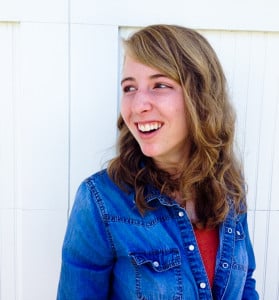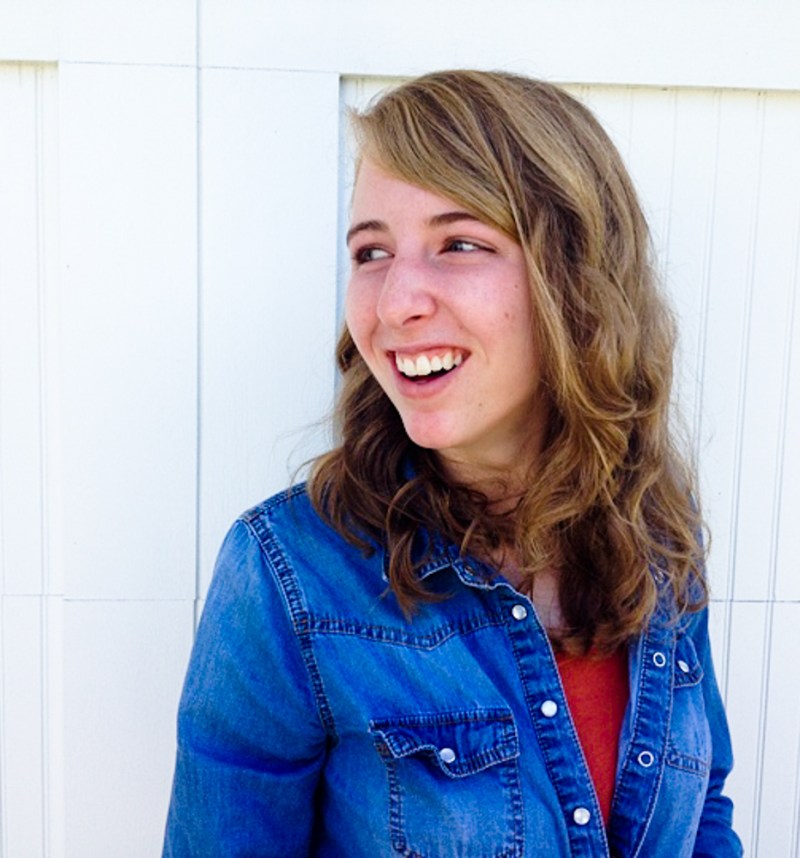
On Friday evening, Kristen Powers ’16 held a “sneak peak” screening of her documentary, “Twitch,” in Annenberg Auditorium, in an event attended by close to 100 people.
The screening of “Twitch,” which tells the autobiographical story of Powers’ struggles with potentially having Huntington’s disease from a very young age, was followed with a brief panel of experts.
Passed down through family genetics, Huntington’s is a disorder that causes the degeneration of parts of the brain and can lead to a loss of muscle coordination and cognitive decline. Powers combined short, unedited video clips that she took of herself in high school to create a 43-minute film of her moments of emotion and expression.
When Powers was 9 years old, her mother, Nicola Jane Powers, was diagnosed with Huntington’s disease. However, since her mother showed signs as early as 1999, Powers largely does not remember her mother before the effects of the disease. Powers related the discrimination they experienced as a result of her mother’s drastic mood swings and yelling, which often led people to mock her mother by calling her a drunk.
When Powers learned that she had a 50 percent chance of inheriting Huntington’s, she adamantly pursued the opportunity to get genetically tested, believing that her life would be less burdensome if she simply knew the answer.
“I wanted to know sooner rather than later if I had Huntington’s. I would have chosen to be tested at 16, but could not until I was 18,” Powers said. “The wisdom of not knowing was a lot heavier than the wisdom of knowing.”
Powers began capturing snippets of her life in high school as the time for the testing came closer. She even filmed on the anniversary of her mother’s death. She said that the documentary had a specific purpose for her.
“It gave me a lot of control over my genetic testing experience,” Powers said. “It was my way of controlling the uncontrollable. I couldn’t control what test result I was going to get, but I could control and manage my film crew.”
On the other hand, the documentary posed challenges to her family, especially her father.
“This documentary was somewhat hard on my dad especially, because he has two kids at risk for HD, so this was making something that was very abstract for years suddenly very real,” Powers said.
Three panelists — neurologist Rosalind Chuang, genetic counselor Carly Siskind and Roy Nierenberg, a lawyer and founder of a computer-assisted thinking software company — were available to answer audience questions after Power’s documentary.
Siskind explained that the turnaround between having the blood test and getting the results had been unusually short for Powers: only two weeks. Normally the waiting period is a month, if not six weeks, with the intent of making sure that knowing the result is the right decision for that patient. Siskind also discussed the counseling process.
“They come in and take a neurological exam and get the whole counseling spiel, and they learn about what [Huntington’s disease] is and about genetic discrimination and reproductive options in the future,” Siskind said. “Then they come back for the blood draw and then a month later for the results.”
Powers is among the five percent of at-risk individuals for Huntington’s who choose to go through with genetic counseling. According to Siskin, most individuals do not want to know if their results come back positive and that they will suffer from Huntington’s.
Powers’ best friend, Daniel Woldorff, was present at the moment when her test result was revealed.
“It felt like we were standing on a bridge that could give out,” Woldorff said. “Was it going to fall through? I felt like the world could be turned upside down right now or it could stay right side up.”
Nierenberg, who was diagnosed with Huntington’s at 63, explained that one can live a happy life with the disease.
“The way I think of it is that you’re dealt certain cards,” Nierenberg said. “Play them the best way you can. I wanted to have something in my life that I felt passionate about. I joined the Berkeley Community Chorus and ride my bicycle up and down the hill every day, and I try to have a couple of things that I just love.”
Powers is currently creating an educational packet that will be distributed along with the movie and is in the process of raising $5,000 more for further development of her documentary.
Contact Angelique Dakkak at angeldak ‘at’ stanford ‘dot’ edu.
